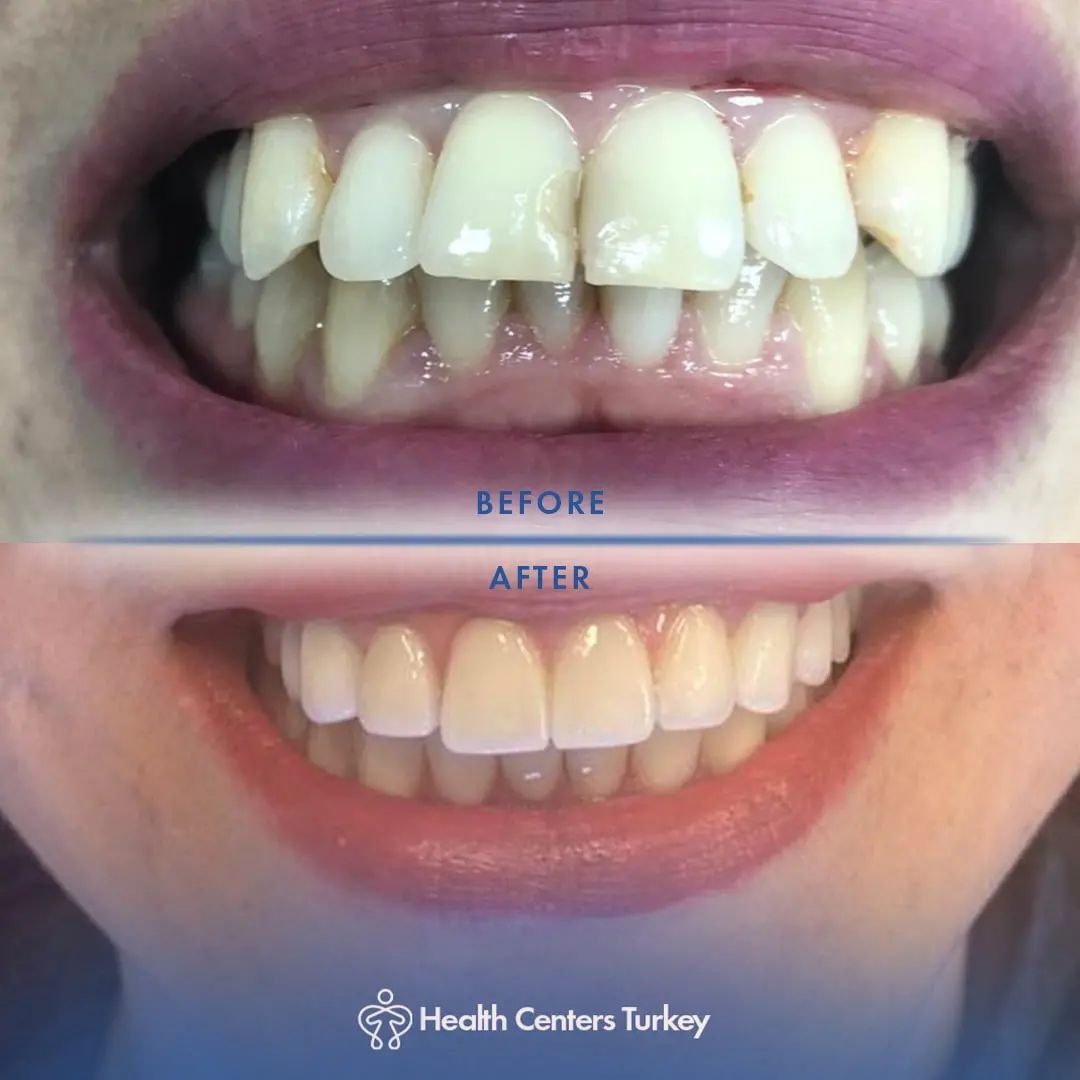Understand the Top Options for Dental Care across Turkey
Understand the Top Options for Dental Care across Turkey
Blog Article
Uncover Best Dental Treatments in Turkey for Implants, Veneers, and More
Dental implants have turn out to be a popular answer for these looking to replace missing teeth. Understanding how these implants can affect adjacent teeth is essential for anyone contemplating this procedure, in addition to for dentists and specialists concerned in dental care.

One important side is that dental implants are designed to be anchored into the jawbone, which suggests they are impartial of adjacent teeth. Unlike dental bridges, which often require the alteration of neighboring teeth, implants can fill the hole with out compromising the health or structure of those surrounding teeth.
This independence helps preserve the integrity of adjacent teeth. When a tooth is misplaced, there could be a natural tendency for neighboring teeth to tilt or shift into the empty house. Such motion can result in misalignment, which may affect chew and total oral health. By putting an implant, you effectively prevent this potential shift, promoting higher alignment in the long term.
Premium Porcelain Veneers for a Stunning Smile in Turkey
Additionally, dental implants help maintain bone density in the jaw. A natural tooth root provides stimulation to the encompassing bone, maintaining it healthy and powerful. When a tooth is missing, the bone can start to deteriorate due to lack of stimulation. With a dental implant mimicking a natural root, bone loss may be minimized, which indirectly benefits adjacent teeth by preserving the overall structure of the dental arch.
While dental implants are advantageous, improper placement can influence neighboring teeth. If an implant is positioned too shut to a different tooth, it may exert undue strain on that tooth, leading to discomfort or potential injury. Proper planning and imaging strategies are essential for avoiding such points.
Save Money on Implants in Turkey
Moreover, maintaining good oral hygiene is crucial after receiving an implant. If not properly cleaned, surrounding teeth could turn out to be vulnerable to dental issues such as decay or gum disease. This underscores the importance of diligent oral care following the process to make sure both implants and adjacent teeth remain wholesome.
Regular dental check-ups are additionally important for monitoring the health of surrounding teeth. Dentists can determine any shifts or potential problems early, permitting for timely interventions. This proactive approach ensures that each the implant and adjacent teeth can coexist without problems.
Health Tourism: Experience Affordable Care in Turkey
Another consideration is the impact of implants on chew drive. When a single tooth is missing, the load of chewing might shift to adjacent teeth, potentially leading to put on or strain. Implants restore correct bite dynamics by redistributing forces within the mouth, which can protect surrounding teeth from undue stress.
Some patients could increase considerations concerning the appearance of dental implants. Well-placed implants can blend seamlessly with present teeth, improving total aesthetics. In distinction, failing to exchange a missing tooth can lead to aesthetic points, together with collapsing of facial structure and modifications in smile dynamics.
It's also price discussing the psychological elements of dental health. Experiencing tooth loss can adversely affect one’s shallowness and willingness to have interaction socially. By restoring your smile with implants, you'll be able to positively affect not only your oral health but also your emotional well-being.
Long-term success of dental implants often hinges on varied components, including the affected person's health, maintenance habits, and the standard of the initial procedure. If adjacent teeth are healthy and properly cared for, the chances are they'll continue to thrive alongside the implants.
Health Tourism: Enjoy Affordable Care in Turkey
In conclusion, dental implants play a vital function in not just restoring individual smiles, but in preserving the health and structure of adjacent teeth. By preventing shifting, sustaining bone density, and redistributing chunk forces, implants can be certain that surrounding teeth remain in optimal condition. Proper placement, hygiene, and regular dental visits can further enhance the benefits of dental implants, leading to a healthier, more confident smile for years to return.
- Dental implants might help keep the alignment of adjacent teeth by providing a secure anchor, preventing adjacent teeth from shifting into the gap left by a missing tooth.
- The presence of an implant might stimulate bone progress in the jaw, helping to preserve the overall structure and integrity of the adjacent teeth.
- Unlike traditional bridges, implants do not require alteration of surrounding teeth, thus preserving their energy and anatomy.
- Implants can improve the distribution of chew forces evenly across the dental arch, decreasing the stress on neighboring teeth during chewing.
- A well-integrated dental implant can lower the danger of bone loss in the area surrounding adjacent teeth, contributing to their long-term health and stability.
- The aesthetics of adjacent teeth can be improved as a result of support provided by implants, which might result in higher general cosmetic outcomes.
- With proper placement, dental implants can prevent gum recession round adjacent teeth by sustaining sufficient dental structure.
- Implants might help mitigate the risks of periodontal disease in nearby teeth by promoting wholesome gum tissue and offering a washer-friendly surface.
- Long-term success of dental implants can result in improved oral hygiene routines, which in flip advantages the health of surrounding teeth.
- The improved useful ability of an implant can encourage patients to chew extra successfully, thus growing saliva production and aiding within the safety of adjacent dental tissues.undefinedHow do dental implants affect adjacent teeth?
What are dental implants and how do they interact with adjacent teeth?undefinedDental implants are synthetic tooth roots which would possibly be surgically placed into the jawbone. They provide a steady basis for replacement teeth while ensuring minimal disruption to adjacent teeth, preserving their integrity and alignment. Finding the Best Dental Care in Turkey.
Unlock the Potential of Dental Packages in Turkey
Can dental implants cause problems for nearby natural teeth?undefinedGenerally, dental implants don't harm adjacent natural teeth. However, if the implant isn't placed correctly or if there’s insufficient oral hygiene, it might lead to issues corresponding to adjacent tooth decay or gum these details disease.

Will getting a dental implant change the way my adjacent teeth feel?undefinedMost sufferers report no change within the sensation of adjacent teeth after implant placement. However, it could take a while to regulate to the presence of the implant, much like how one could adapt to other dental restorations.
Can dental implants help preserve the health of adjacent teeth?undefinedYes, dental implants can help preserve the health of adjacent teeth by stopping bone loss that may happen after tooth loss. This preservation helps the alignment of close by teeth, decreasing the danger of shifting or misalignment.
Incredible Transformation from Dental Treatments in Turkey
Do I want to change adjacent teeth when getting an implant?undefinedTypically, adjacent teeth don't want alteration when putting an implant. This is certainly one of the advantages of dental implants over traditional bridges, which often require reshaping adjacent teeth for assist.
How does the therapeutic means of an implant affect close by teeth?undefinedThe healing process involves osseointegration, the place the implant fuses with the jawbone. During this time, adjacent teeth stay unaffected and retain their perform, though it’s essential to observe post-operative care suggestions. Price Comparison for Dental Care in Turkey.
Quick Treatment Options for Time-Conscious Visitors
Can dental implants result in bone loss around adjacent teeth?undefinedIf dental implants are positioned properly and cared for adequately, they need to not result in bone loss round adjacent teeth. In visit the site fact, they may help stimulate bone development, combating the natural bone loss that always follows tooth extraction.
What precautions should I take to guard adjacent teeth after getting an implant?undefinedRoutine dental hygiene, including brushing and flossing, along with common dental check-ups, is crucial. Avoiding onerous meals and following your dentist’s aftercare instructions may even shield both the implant and adjacent teeth.
Is it frequent for adjacent teeth to shift after an implant is placed?undefinedIt's not typical for adjacent teeth to shift after an implant placement, especially when the implant is positioned appropriately and maintained properly. If there’s any motion, it may be as a outcome of different underlying issues that must be evaluated by a dental professional. Report this page